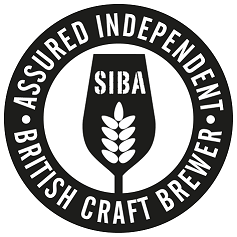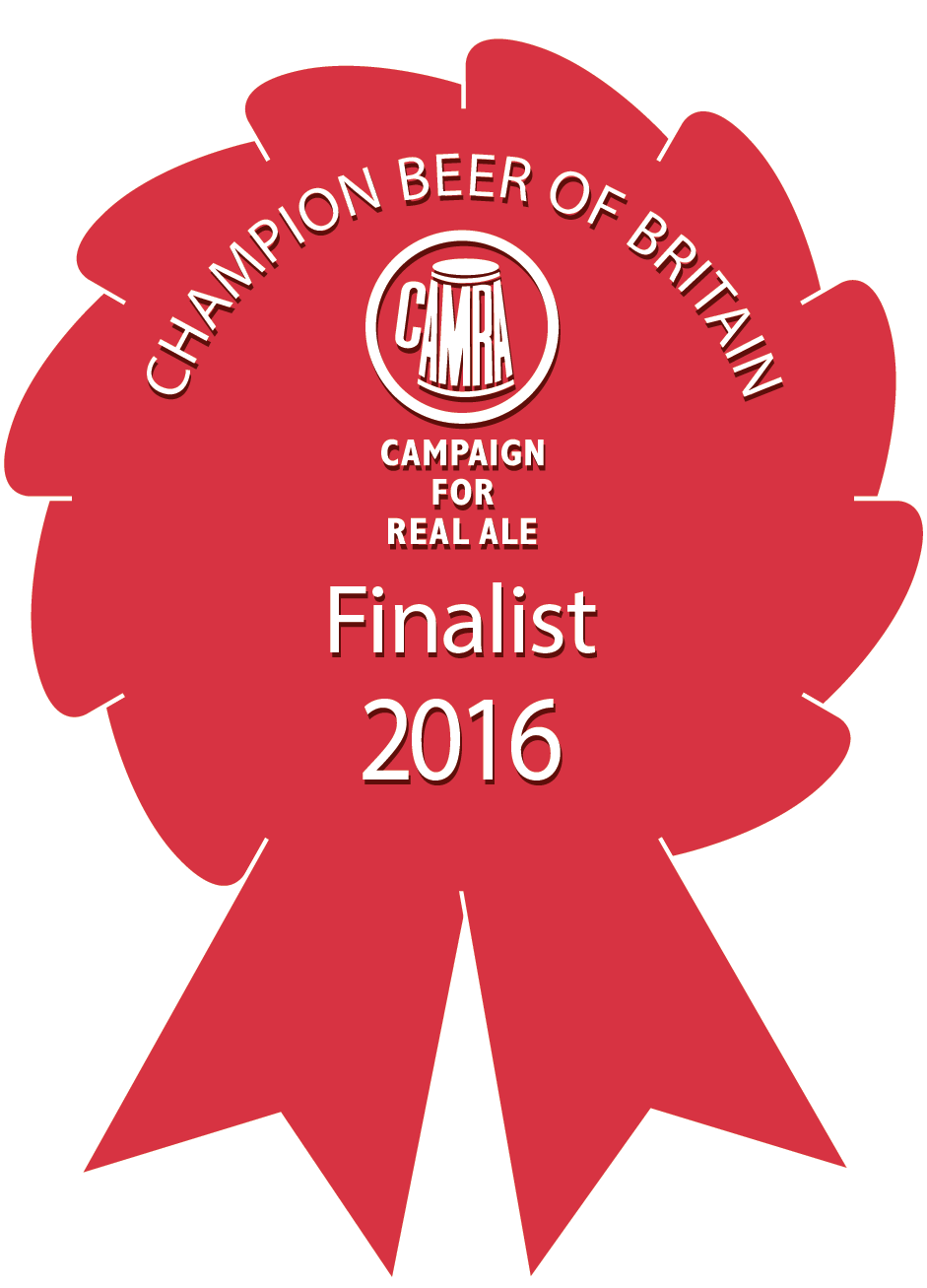Sustainability
Every drop of beer we've ever brewed has been brewed with 100% renewable energy
Our aim is to be the best, most sustainable small brewery in North Somerset. Please see below to see how environmental sustainability is at the heart of everything we do at Twisted Oak Brewery

Reducing our carbon footprint - We have signed up to the SME Climate Hub and are committed to reducing our carbon emissions. Read more about SME Climate Hub here
Energy Use - Renewable Energy - Every drop of beer we've ever brewed has been brewed with 100% renewable energy. The array of solar PV panels on the roof of our brewery produce more electricity over the year than we use. The brewing process involves heating and pumping a lot of water and this is all done without the use of fossil fuels.
- We regularly monitor our energy use and look for ways of reducing this. Our electricity is renewable but we won't waste it - any surplus energy is fed back into the grid and helps reduce the UK's reliance on fossil fuels
- We monitor our delivery mileage, reducing unnecessary journeys and maintaining our vehicles (especially our tyre pressures)
- We have insulated our buildings wherever possible - for instance our cold store room is fully insulated with recycled insulation material
- We have replaced old inefficient lighting with LED lighting and always ensure lights are turned off when not in use
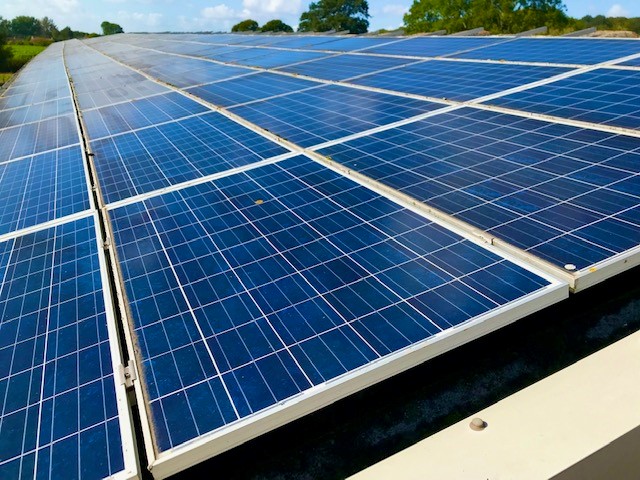
Transportation - Keeping it local, we love local
- The vast majority of our beer never travels more than 35 miles from the brewery, most of it travels less than 16 miles and a healthy regular supply barely travels more than 2 miles to some of our favourite local pubs
- We occasionally sell a small amount of our beer to wholesalers further afield. We have carefully selected a couple of independent wholesalers to work with who share our values
Our beer miles are very low and that's just the way we like it, supplying local, independent shops and pubs.
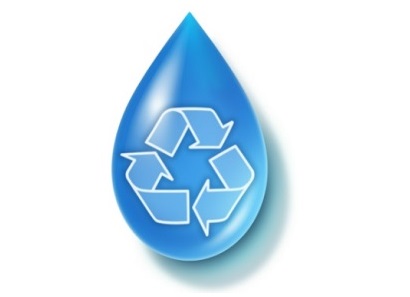
Water Use - We won't waste water. Water is a scarce resource in some areas (although it always seems to be raining here) and potable water has a significant carbon footprint. These are the ways we save water:
- Recycling water (and heat) - We collect hot water from our plate heat exchanger (used to chill our beer during brewing) and store the heat and water ready for the next brew. Since it is already hot we keep it insulated and therefore save on the energy needed to heat it before brewing with it
- Rinsing casks after cleaning - We strictly time our cask rinsing to ensure no excess clean water is wasted
- Pressure washing dirty casks - We harvest rain water and use this to pressure wash our dirty casks
Waste Water - Being a brewer is often described as spending 80% of your time cleaning and 20% of your time actually brewing. All brewing equipment has to be spotlessly clean and sterile. This means using chemical cleaning products and a lot of water for rinsing.
- The waste water from cleaning our brewing equipment, yeast sludge and beer sludge is collected separately in our sludge tank. We are not on mains water so this waste is collected using a tanker and treated off site
- Our aim for the future is to build a reed bed on site to deal with all of our waste water. A reed bed is a natural sustainable way to deal with this type of waste. Reed beds can also help improve the local biodiversity
- We now have an agreement in principle with our farmer landlord to build a reed bed and have identified the land on which to build this
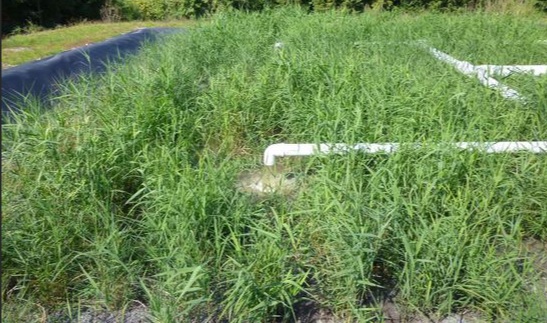
Other Brewing Waste
- Waste Grain - After each brew the used malted barley is taken away by the farmer and used as cattle feed
- Hops - Spent hops are collected at the end of a days brewing and added to the farm compost heap
Other Waste - Packaging waste and other consumables
- Cardboard - All cardboard and other recyclable materials are separated and recycled
- Plastic wrapping - All plastics are separated and recycled where possible and otherwise sent to commercial waste
- Plastic chemical containers/drums - All containers are collected and returned for re-use by the supplier
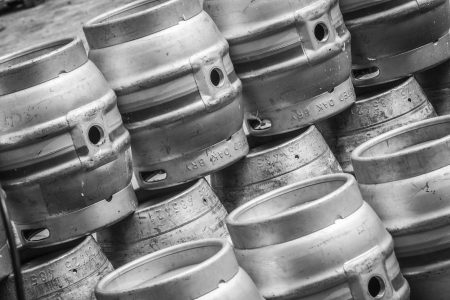
Packaging - There are loads of packaging options for beer. We have chosen to focus mainly on cask conditioned beer.
- Most of our beer (approximately 80% of it) is delivered to pubs in re-useable metal casks. We also have a few reusable plastic casks from when we first started up
- Empty casks are collected by us from our customers after use and then washed, sterilised and refilled with fresh beer. Each cask is re-used hundreds and hundreds of times
- Cask conditioned beer continues to ferment in the cask, this produces CO2 naturally in the cask so no extra CO2 is added. Cask beer is usually served straight from the cask by gravity or by hand pulls. Simple, straightforward and very sustainable
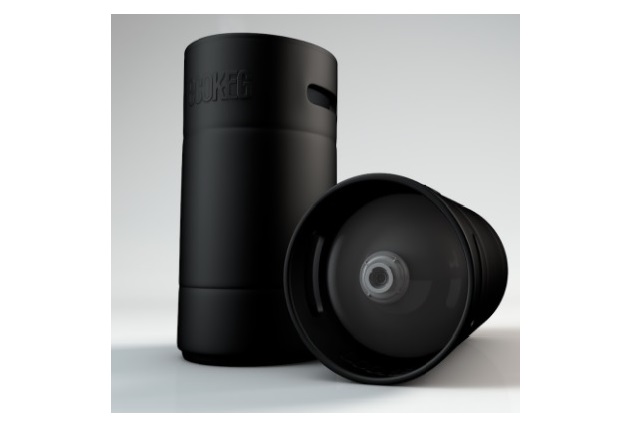
- We provide a small amount of beer in kegs (probably about 5% of our beer)
- There are lots of keg options. We have chosen to use Ecokegs
- We use Ecokegs partly because of the simplicity in filling them but also because they are lightweight and more easily recyclable than other plastic keg options
- All plastic component parts of the Ecokeg can be easily separated and sorted to aid recycling. Read more at: Ecokeg.com
- We collect our used Ecokegs, dismantle them by hand and recycle all of the parts of the keg - except the hard plastic outer casing which we are able to re-use
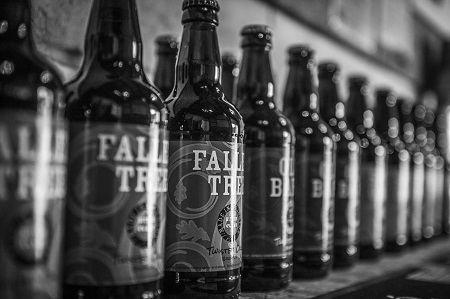
Bottles and Cans- Our bottled beer goes to local independent shops or is delivered directly to customers or collected from the brewery
- Bottled beer makes up about 12% of our output. Glass bottles are easily recyclable and glass is one of the most recyclable packaging materials available
- The glass bottles we use are designed to be one-trip bottles - this means the bottles are as thin and lightweight as possible so the carbon footprint associated with transporting them is as low as it can be
- Used bottles can be easily recycled through kerbside recycling
- We have recently trialled canning one of our beers. Aluminium cans are lightweight and easily recyclable.
Recycling vs Re-using Glass Bottles - There is often debate about the merits of re-usable glass bottles with deposits on them as an alternative to one trip bottles. Our research into this suggests that re-usable bottles have to be considerably thicker glass to make them strong enough to withstand and survive repeated journeys and cleaning cycles. This extra glass makes them heavier and the extra weight can add considerably to the fuel consumption to deliver them. We believe recycling is the best option with glass beer bottles.
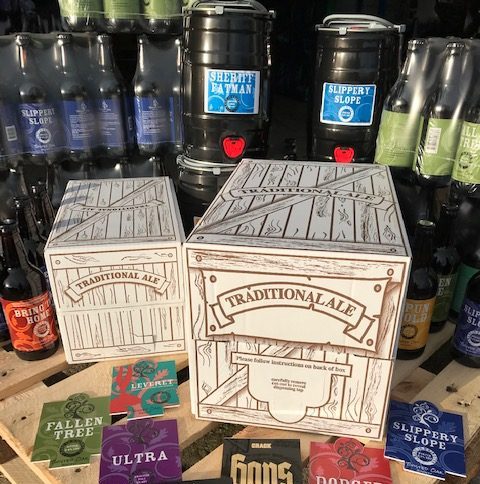
Mini-kegs - We use metal 5 litre mini-kegs to deliver a small amount of beer locally. This accounts for about 1% of our beer and is actually a really useful way of collecting the last few litres of beer from a fermenter when there isn't enough left to fill another cask - therefore less waste
- Mini-kegs are like large drinks cans and are easily recycled using kerbside recycling
Bag-in-Box - Less than 1% of our beer is sold in bag-in-box packaging. These provide a convenient way of supplying a reasonable amount of beer as a one-off for a party. The cardboard is recyclable but the bags unfortunately aren't
- We probably sell about 1 bag-in-box a month, maybe a few more at Christmas
Single Use Plastics
Pump Clips - We have switched from plastic pump clips to compostable cardboard pump clips
Keystones and shives - These are the bungs used to seal our beer into our casks. Unfortunately these are not recyclable but all are removed by hand during the cleaning process and disposed through our commercial waste
Finings
Finings are ingredients used during the brewing and conditioning stages of beer making which help to clear the beer. Traditionally the finings used by brewers are derived from fish (specifically the swim bladders of fish)
We use a finings product which is not derived from fish and is certified as vegan
We only use finings in our cask conditioned beers. Therefore these beers are vegan friendly (except our Milk Stout - Ghost Town - which contains Lactose). We do not use finings in our bottled beers, keg beers or mini-keg beers
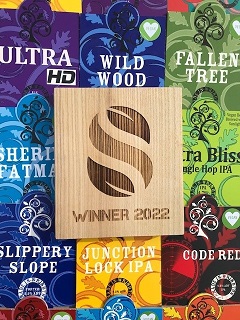
Smart Living Awards 2022
Winner - Smart Food & Farming Category
Twisted Oak Brewery are delighted to have been awarded a Smart Living Award 2022.
The awards were held at the Winter Gardens in Weston-Super-Mare and featured many local businesses. All of the businesses nominated and shortlisted have embraced environmental sustainability as an important part of their business.
Twisted Oak Brewery were commended for taking a strong whole systems approach to their environmental business practices.
Brewery Opening Times:
Monday - Friday: 9.00 am - 2.00 pm
Saturday - Sunday: Closed
Where to find us:
The Brewery, Yeowood Farm, Iwood Lane, Wrington BS40 5NU
01934 310515
info@twistedoakbrewery.co.ukBrewery Visits:
Please feel free to visit us at the brewery to purchase our beer, but please get in touch first as we may be out delivering.

